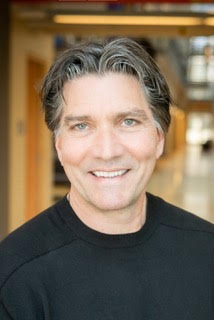DATA-DRIVEN CONTROL OF UNKNOWN NONLINEAR SYSTEMS USING EXTREMUM-SEEKING CONTROL
The Montreal Chapters of the IEEE Control Systems (CS) and Systems, Man & Cybernetics (SMC) cordially invite you to attend the following in-person talk, to be given by Dr. Martin Guay, Professor at the Department of Chemical Engineering, Queen’s University.
Date and Time
Location
Hosts
Registration
Speakers
 Dr. Martin Guay
Dr. Martin Guay
DATA-DRIVEN CONTROL OF UNKNOWN NONLINEAR SYSTEMS USING EXTREMUM-SEEKING CONTROL
The complexity of system dynamics can often be an obstacle in the development of reliable dynamical models. In classical control engineering methodologies, the knowledge of the system’s dynamics has always been a key element in the design, testing, and implementation of control systems. Since the development of reliable dynamical models is often restrictively onerous and fraught with technical and experimental difficulties, access to high-quality dynamical models is often limited or inexistent in many applications.
The last ten years have seen a tremendous amount of research activity on the development of model-free control techniques. Many learning techniques such as reinforcement learning have been proposed to design of real-time systems that can achieve near-optimal control performance. While learning techniques can be quite general, they offer only limited stability and performance guarantees. Data-driven control techniques have also emerged as a possible alternative to learning techniques. Such techniques focus on linear control systems.
The design of model-free real-time optimization techniques has been an area of tremendous development over the last ten years. One leading model-free technique is extremum-seeking control (ESC). This classical adaptive optimization technique was first designed to solve steady-state optimization problems for nonlinear dynamical systems in which one seeks the optimum steady-state of a measured objective function. In contrast to other data-driven techniques, ESC provides stability and performance guarantees that rely on minimal assumptions about the process dynamics. It does not require any knowledge about the dynamical model or the objective function. This feature is quite appealing in practical situations. Correspondingly, the technique has been applied extensively in many application areas such as biomedical engineering, aerospace engineering, automotive, biotechnology, and process control.
In this presentation, we seek to review some of the new developments in the generalization of extremum-seeking control as a potential alternative to existing data-driven techniques. In particular, it is shown how one can apply this technique to design reliable control systems that require only limited knowledge of the process dynamics. The results will seek to address some of the limitations of the proposed data-driven approach. New areas of research are identified to fully realize the potential of ESC as a data-driven control approach.
Biography:
Dr. Martin Guay received his B.A.Sc. in Chemical Engineering and Biochemistry from the University of Ottawa in 1990. He completed his M.Sc. degree in the Department of Chemical Engineering at the University of Ottawa in 1992 under the supervision of Prof. D.D. McLean. He obtained his Ph.D. in 1996 from the Department of Chemical Engineering in 1996. In 1997, he joined the Department of Chemical and Materials Engineering at the University of Alberta where he took a tenure-track position which he left in 1999 to join the Department of Chemical Engineering at Queen’s University. Dr. Guay’s research interests are in the area of process control, control theory, and applied statistics. In 2011, he received, with Dr. Veronica Adetola, the Best Paper Award (Theory), Journal of Process Control (2008-1011). Dr. Guay received Queen’s University Chancellor Research Award, Premier Research Excellence Award, He also received the Syncrude Innovation Award and the D.G. Fisher Award from the Canadian Society of Chemical Engineers. He is an Associate Editor for Automatica and the IEEE Transactions on Automatic Control. He is the Editor-in-Chief of the Journal of Process Control and Senior Editor for the IEEE Control Systems Society Letters. He is also a review editor for the Canadian Chemical Engineering Journal and Associate Editor for the IFAC Journal Nonlinear Analysis and Hybrid Systems.


 Add Event to Calendar
Add Event to Calendar